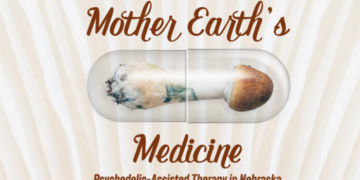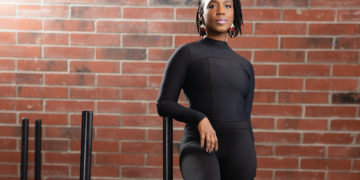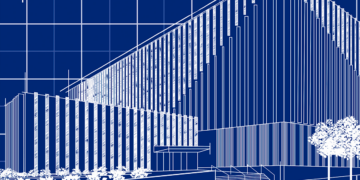When Tony Bennett took to the stage at Holland Performing Arts Center in 2005, it was just another in the long list of innumerable venues he had played over the course of his legendary career. By the time he left, it stood out as one of the best.
That’s because as he began to sing, he paused, put aside his microphone and said, “I don’t need this.” Bennett was able to perform without technical enhancement, a rarity among performance venues. Not, however, at the Holland. The facility boasts state-of-the-art acoustics, and whether front-row-center or in the uppermost tier, there isn’t a bad seat in the house.
Making sure there aren’t any bad seats is the job of Omaha Performing Arts, which is currently celebrating its 10th anniversary. The nonprofit organization manages both the Holland Center, which opened in 2005 and is home to the Omaha Symphony, and the Orpheum Theater, built in 1927 as a premier venue for vaudeville acts. Together the two dominate the city’s performing arts scene and feature an eclectic array of talent ranging from classical ballet legends to Broadway blockbusters to jazz giants to even political pundits.
That kind of variety was unimaginable 10 years ago when the Orpheum served as Omaha’s primary performing arts venue. It hosted Opera Omaha, the Omaha Symphony, and limited-run Broadway productions as well as community events such as high school graduations, dance recitals, and fashion shows. “The Orpheum’s schedule didn’t allow for the majority of artists and performers we have today,” explains Joan Squires, Omaha Performing Arts’ president since its founding. “It was a very confining schedule.”
Omaha also lacked a venue with the sound quality necessary to showcase singers and musicians to full effect. “One of the problems we had in the performing arts was that the music hall at the Civic Auditorium had fairly poor acoustics,” explains John Gottschalk, the organization’s chairman of the board. “You can’t have performers if you don’t have a place where what they do on stage isn’t getting out to the audience.”
 Dick Holland, who, along with his late wife Mary, provided the main bequest for the $102 million performing arts facility that today bears their name, elaborates, “We had no good place for the symphony orchestra. The symphony is an expensive damn thing to have. And it needs full support to have first class musicians.”
Dick Holland, who, along with his late wife Mary, provided the main bequest for the $102 million performing arts facility that today bears their name, elaborates, “We had no good place for the symphony orchestra. The symphony is an expensive damn thing to have. And it needs full support to have first class musicians.”
The Holland Center provided that support and opened up the Orpheum’s schedule, making it possible for Omaha Performing Arts to offer a wider selection of performances. “We bring in the kinds of performances that would not appear here otherwise,” Squires notes. “We really seek to bring in top artists and have brought in a wonderful array. That’s a large factor in our success.”
Deborah Ward, director of marketing and communications for the Omaha Convention & Visitors Bureau, loves that success. “Omaha Performing Arts has really enhanced not only downtown’s cultural landscape but also the entire city’s,” she comments. “It’s provided unique performance venues and equally unique performances and has been really clever in the acts it’s brought in. We recently did research for the Kansas City, Des Moines, and Sioux Falls markets. We specifically wanted to know why those people come to Omaha. We found that 11 percent come for arts and culture.”
Less quantifiable are the educational benefits to the community, which are just as important and exist as one of Omaha Performing Arts’ primary missions. “We look for community opportunities that don’t always exist,” explains Squires. “We use performances to partner with the community and find ways to connect and build community engagement.” This includes master classes taught by performers, student matinees, discounted tickets for underserved communities, and a host of other offerings. In 2011 the Broadway show Wicked, for example, provided an opportunity for an anti-bullying summit involving cast members, school students, and the Anti-Defamation League. This year, the organization is introducing Carnegie Hall Musical Explorers, a program that builds basic music skills for students in kindergarten through second grade.
“The experience for our community is wonderfully enriching, and people understand that,” notes Gottschalk. “We have these professionals in town and the great gifts they give to people in terms of their time and talent. When a young person walks into a great hall, they’re inspired.”
As Omaha Performing Arts celebrates its first decade, Squires can’t help but be enthusiastic about its future. “As we get into the 10th anniversary, our real focus is to engage the community,” she says. “There’s still so much we can do.”
Holland agrees. “We’re damned proud of what we’ve done. We’re going into the coming 10 years terribly enthusiastic about everything and about growing more.”














